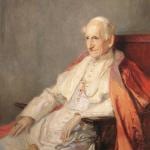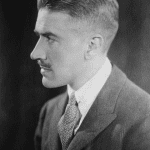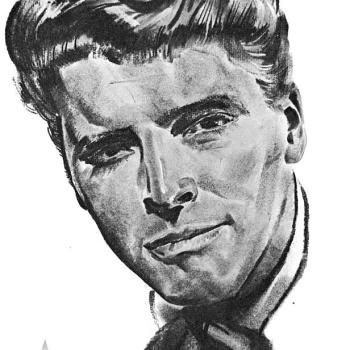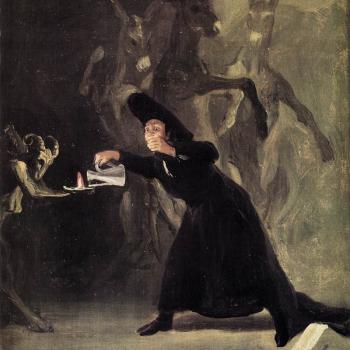In the same work, he says that his motto is “Nitimur in vetitum” (“we strive for the forbidden”). Each person must shirk exterior frameworks that would delude them into thinking his goal is coherence, is becoming like such ideals. Instead, we strive, we will through and beyond our contradictions. Such could, in principle, include just about anything.
If I may be forgiven for quoting Nietzsche at length, it seems fitting that you see him express this in his own words:
At this point I can no longer evade a direct answer to the question, how one becomes what one is. And in giving it, I shall have to touch upon that masterpiece in the art of self-preservation, which is selfishness. … Granting that one’s life-task—the determination and the fate of one’s life-task—greatly exceeds the average measure of such things, nothing more dangerous could be conceived than to come face to face with one’s self by the side of this life-task. The fact that one becomes what one is, presupposes that one has not the remotest suspicion of what one is. From this standpoint even the blunders of one’s life have their own meaning and value, the temporary deviations and aberrations, the moments of hesitation and of modesty, the earnestness wasted upon duties which lie outside the actual life-task. In these matters great wisdom, perhaps even the highest wisdom, comes into activity: in these circumstances, in which nosce teipsum would be the sure road to ruin, forgetting one’s self, misunderstanding one’s self, belittling one’s self, narrowing one’s self, and making one’s self mediocre, amount to reason itself. Expressed morally, to love one’s neighbour and to live for others and for other things may be the means of protection employed to maintain the hardest kind of egoism. This is the exceptional case in which I, contrary to my principle and conviction, take the side of the altruistic instincts; for here they are concerned in subserving selfishness and self-discipline. The whole surface of consciousness—for consciousness is a surface—must be kept free from any one of the great imperatives. Beware even of every striking word, of every striking attitude! They are all so many risks which the instinct runs of “understanding itself” too soon. Meanwhile the organising “idea,” which is destined to become master, grows and continues to grow into the depths,—it begins to command, it leads you slowly back from your deviations and aberrations, it prepares individual qualities and capacities, which one day will make themselves felt as indispensable to the whole of your task,—step by step it cultivates all the serviceable faculties, before it ever whispers a word concerning the dominant task, the “goal,” the “object,” and the “meaning” of it all. Looked at from this standpoint my life is simply amazing. For the task of transvaluing values, more capacities were needful perhaps than could well be found side by side in one individual; and above all, antagonistic capacities which had to be free from the mutual strife and destruction which they involve. An order of rank among capacities; distance; the art of separating without creating hostility; to refrain from confounding things; to keep from reconciling things; to possess enormous multifariousness and yet to be the reverse of chaos—all this was the first condition, the long secret work, and the artistic mastery of my instinct. Its superior guardianship manifested itself with such exceeding strength, that not once did I ever dream of what was growing within me—until suddenly all my capacities were ripe, and one day burst forth in all the perfection of their highest bloom. I cannot remember ever having exerted myself, I can point to no trace of struggle in my life; I am the reverse of a heroic nature. To “will” something, to “strive” after something, to have an “aim” or a “desire” in my mind—I know none of these things from experience. Even at this moment I look out upon my future—a broad future!—as upon a calm sea: no sigh of longing makes a ripple on its surface. I have not the slightest wish that anything should be otherwise than it is: I myself would not be otherwise…. But in this matter I have always been the same. I have never had a desire. (Ecce Homo)
Fair enough: but what here is interesting to a Christian? Put bluntly, Nietzsche lays the problem bare. Either there is a god—and there is reason to aspire to love, to compassion, to sacrifice—or there is no god and he is correct—there can be only the process of constant self-overcoming, restless, blissful, life-embracing potentia. There is no room for Richard Dawkins or Christian preachers who hawk watered-down humanism or the Prosperity Gospel. It is one or the other. Nietzsche himself hated what he saw as the bourgeois religion of smug post-Christian Europeans, people who wanted to do away with Christ but keep all the niceties, keep the basic framework of Christian morality. If God is dead, there is no point; this is an immense self-deception. How thankful I am that he made this so clear: either there is something and I must pick up my cross or there is nothing and I must blaze out like a star.













